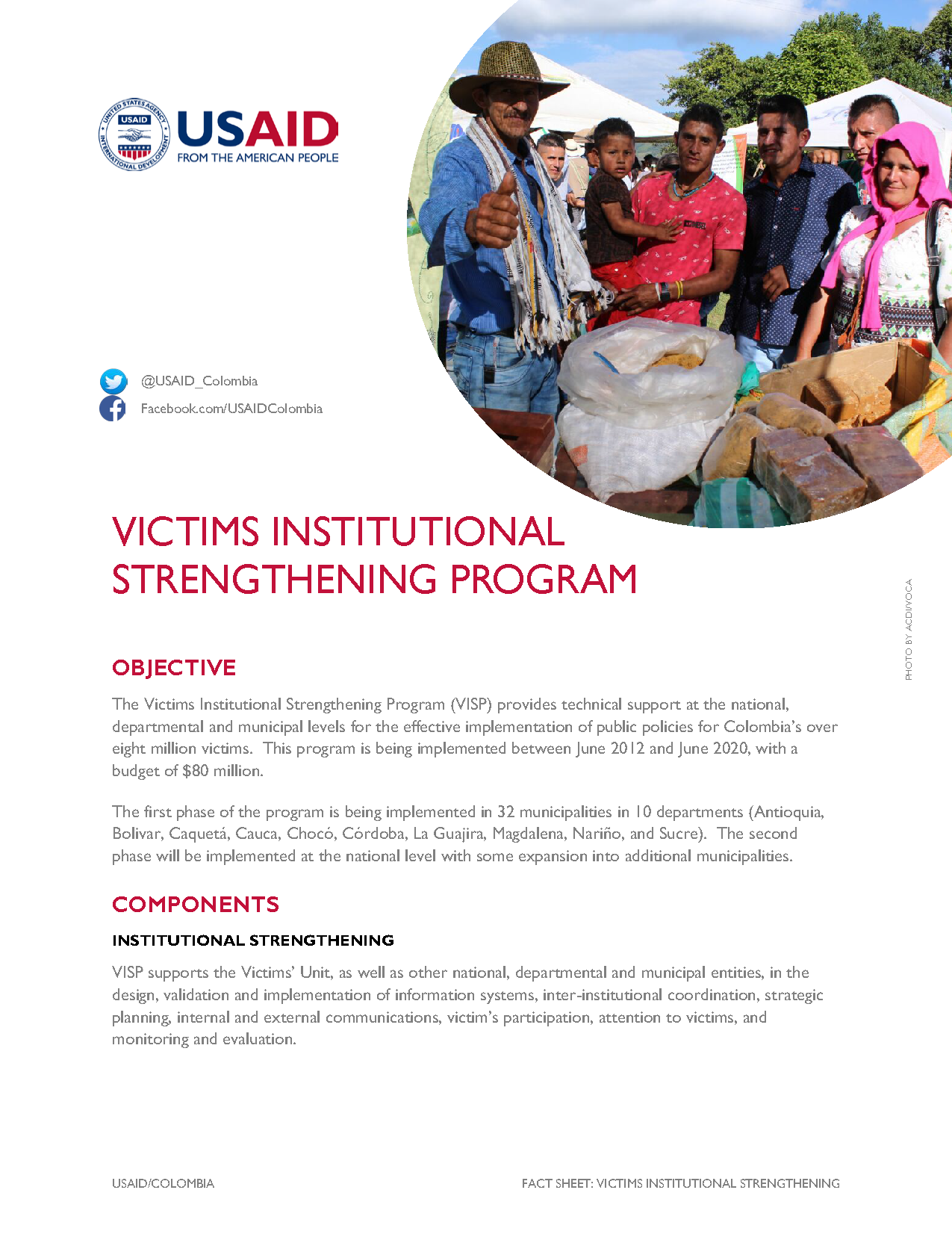Victims Institutional Strengthening Program ![]() (pdf - 311k)
(pdf - 311k)
OBJECTIVE
The Victims Institutional Strengthening Program (VISP) provides technical support at the national, departmental and municipal levels for the effective implementation of public policies for Colombia’s over eight million victims. This program is being implemented between June 2012 and June 2020, with a budget of $80 million.
The first phase of the program is being implemented in 32 municipalities in 10 departments (Antioquia, Bolivar, Caquetá, Cauca, Chocó, Córdoba, La Guajira, Magdalena, Nariño, and Sucre). The second phase will be implemented at the national level with some expansion into additional municipalities.
COMPONENTS
Institutional Strengthening
VISP supports the Victims’ Unit, as well as other national, departmental and municipal entities, in the design, validation and implementation of information systems, inter-institutional coordination, strategic planning, internal and external communications, victim’s participation, attention to victims, and monitoring and evaluation.
Physical and Psychosocial Rehabilitation
VISP supports the design and delivery of psychosocial competencies for public servants and communities; identification and assessment of victims’ psychosocial and/or physical behavior; training of those responsible for implementing rehabilitation and humanitarian demining measures; and development of mine risk education tools and methodologies.
Transitional Justice
VISP builds institutional capacity to develop protocols and routes for individual and collective reparation. It also supports programs to promote the diffusion and appropriation of truth and historical memory, and promotes public and private investment in reparation efforts.
Differential Approach
VISP supports the institutional strengthening of processes and tools for the attention and reparation of indigenous and Afro-Colombian populations, people with disabilities, women, children and adolescents, and the lesbian, gay, bisexual, transgender, and intersex community. VISP also strengthens social mobilization against sexual and gender-based violence, training for ethnic and women’s organizations, and support services for victims of sexual violence.
RESULTS
- Registered 8.2 million victims through the Victims’ Unit.
- Trained 370 public servants in the registry of persons with disabilities.
- Reduced time required to assess victims’ elegibility fro legal redress and benefits from 110 days to 60 days.
- Trained 2,863 public officers in self-care methodologies to avoid labor burnout.
- Provided technical assistance to 152 cases of collective reparation.
- Refurbished 11 attention centers (representing 31 percent of national total).
- Supported 26 local memory initiatives to comply with the victims’ right to truth and memory in VISP municipalities.
- Disseminated Basta Ya! report to inform society at large on the conflict; translated report into English to inform the international community on the conflict’s impact.








Comment
Make a general inquiry or suggest an improvement.